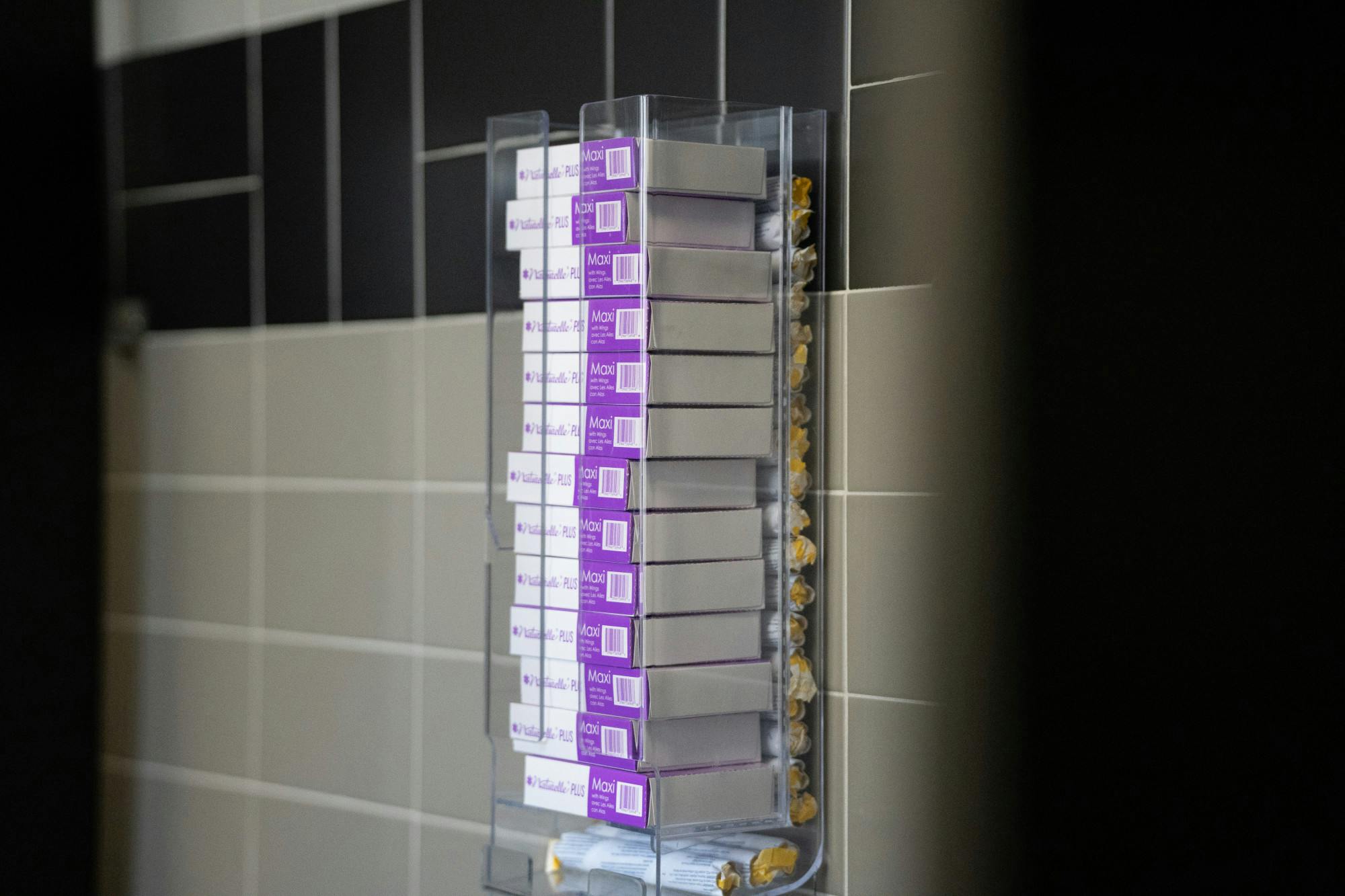In 2018, three Michigan State University students founded Mission Menstruation because they saw a need on college campuses for free menstrual products and more period education. Five years later, the MSU chapter of the now-national organization put free menstrual products in over 100 bathrooms at MSU.
Mission Menstruation has established 'desk locations' in 40 buildings on campus. Desk locations are buildings on campus where the group places a pink box of free menstrual products in the women’s restrooms and at the front desk.
Psychology sophomore and Mission Menstruation member Iliana Wilson said desk locations are added either by request from a building administrator or outreach from the inventory committee.
“Our inventory committee actively seeks contacts for these different buildings and asks if they want to be a part of our program, and 90% of the time they say yes, I mean, everybody wants free products,” Wilson said.
The pink boxes display a QR code on top, used primarily to track usage, Wilson said. Google forms are sent out monthly to all desk locations asking what products need to be restocked and members restock products at locations that are convenient for them.
Human biology sophomore, Mission Menstruation and MSU lead advocate Nupur Huria said the number of desk locations has more than doubled since the organization’s founding. In February 2022, the group decided to roll out a survey to gauge the period poverty and stigma on campus.
The survey received over 500 responses. About 94% of respondents said they had a menstrual emergency on campus and there weren’t products available for them. Additionally, 25% of respondents said they had missed class or work because of menstruation-related problems.
“We gave them the opportunity to talk about what they used if they didn't have products,” Huria said. “Many of them said they use toilet paper, socks from their backpack, pieces of cloth or even free-bleed, which is not hygienic. It's not comfortable. It's not healthy.”
Mission Menstruation took the survey results to MSU administration, hoping to show the need for free menstrual products on campus. When the university didn’t implement the initiative due to questions about budgeting and student usage, the group started researching and creating a comprehensive, budgeted proposal.
Huria said the chapter worked with menstrual product manufacturers and other universities that had successfully implemented similar programs to develop a budget. Along with the budget, the chapter showed the administration a timeline of how to implement the initiative.
“After that we moved forward with drafting a proposal with all of that, making a bunch of compromises for where these dispensers would be located, which ones would not be used anymore, and how that would work,” Huria said.
Mission Menstruation then presented the completed proposal to vice president for Strategic Infrastructure Planning and Facilities Dan Bollman and senior vice president for Student Life & Engagement Vennie Gore. Bollman and Gore approved the proposal in July 2022.
On Jan. 19, MSU announced that the installment of complimentary menstrual product dispensers in first floor women’s and all-gender restrooms would be fully implemented by the end of the month.
“Ultimately, menstrual products, it's a right,” Wilson said. “They shouldn't be as expensive as they are. They should be more accessible.”
Moving forward, Huria said the chapter hopes to add products to men’s restrooms in areas without gender neutral restrooms. She said she envisions doing this to be more difficult than the first initiative, although several desk locations have already requested products in men’s bathrooms.
“I know it might take some time to actually help the university itself put products there,” Huria said. “There probably is going to be a much higher rate of vandalism and opposition when it comes to putting those products in most men's restrooms, unfortunately, but (it’s) definitely a goal that we want to accomplish over the next couple of years.”







